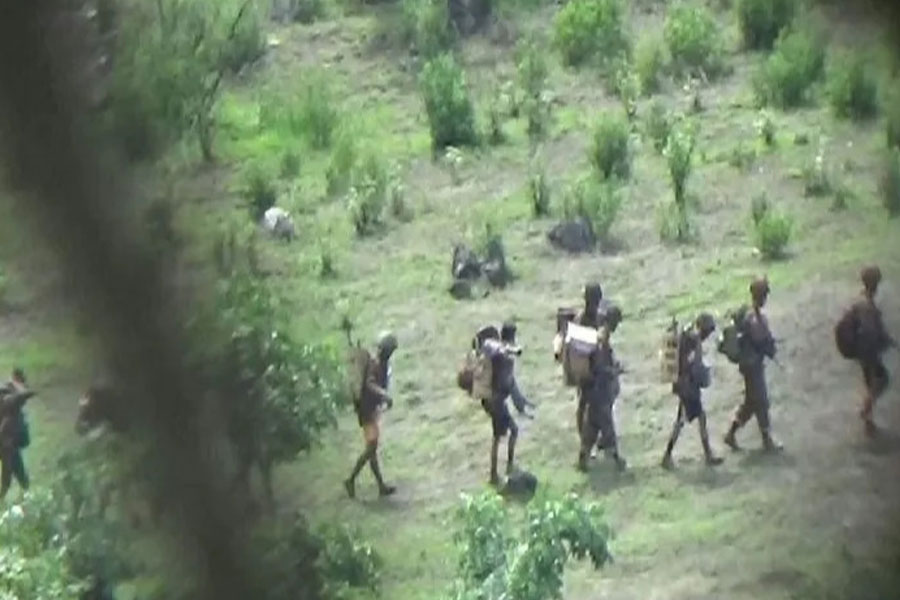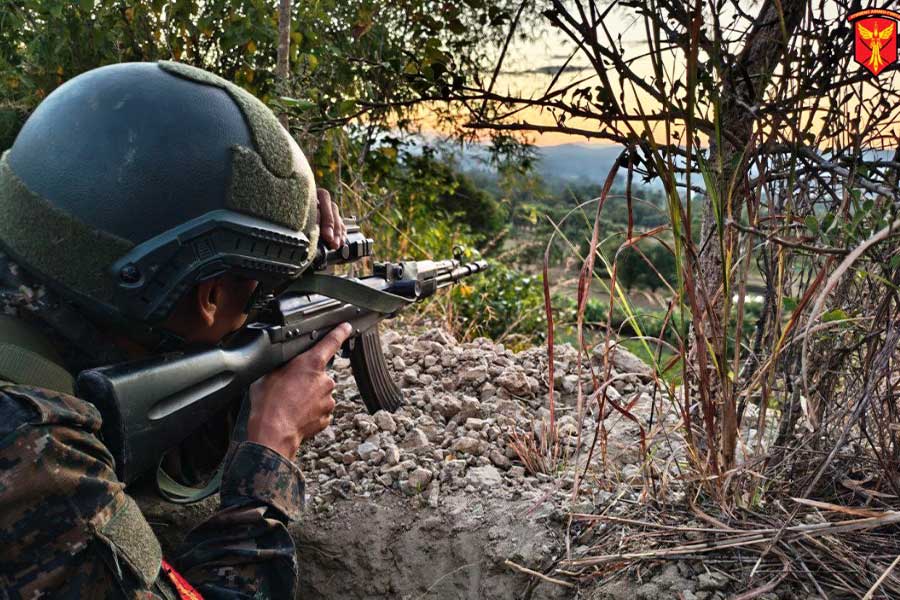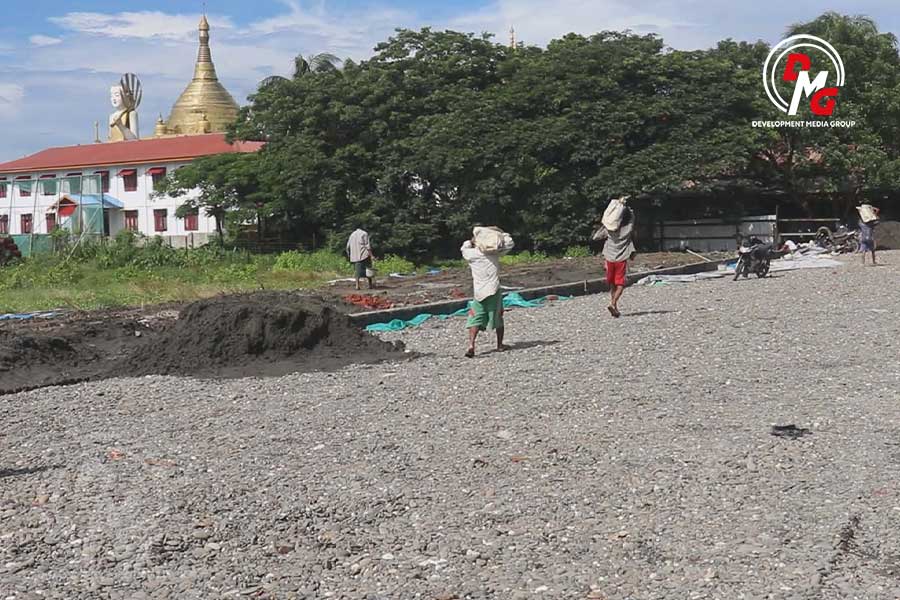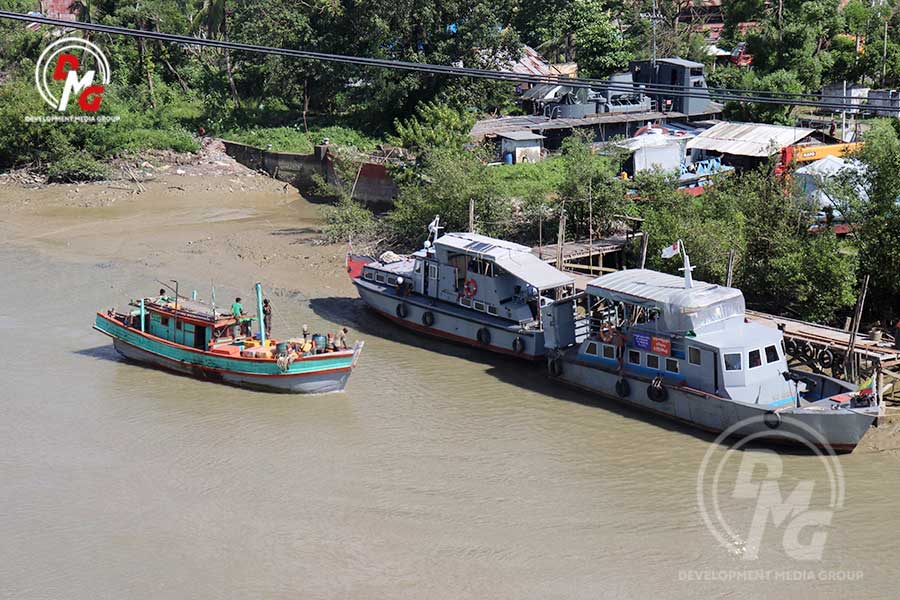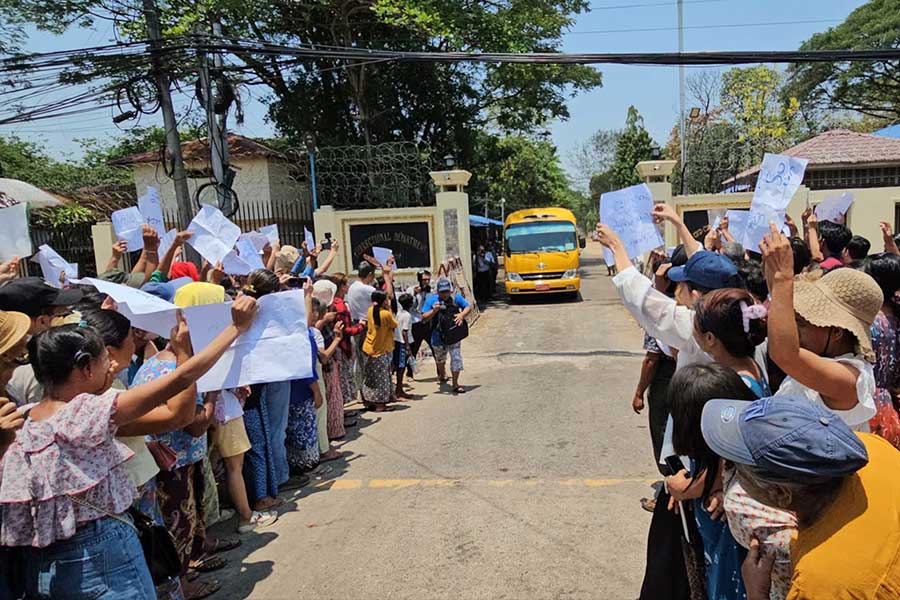- Junta launches major offensive to retake strategic Mawchi mining town
- Extreme poverty drives Sittwe residents to dismantle abandoned houses for income
- Weekly Highlights from Arakan (Feb 23 to March 1, 2026)
- Over 300 political prisoners freed from 10 prisons nationwide
- DMG Editorial: Between War and Opportunity - A New Border Reality for Bangladesh and Arakan
Debt adds to woes of Arakan’s conflict-affect people: UN humanitarian agency
Many conflict-affected people in Arakan State are struggling to repay loans due to the coronavirus pandemic, low incomes and unemployment, according to a statement from the United Nations Office for the Coordination of Humanitarian Affairs (UNOCHA Myanmar).
27 Dec 2020
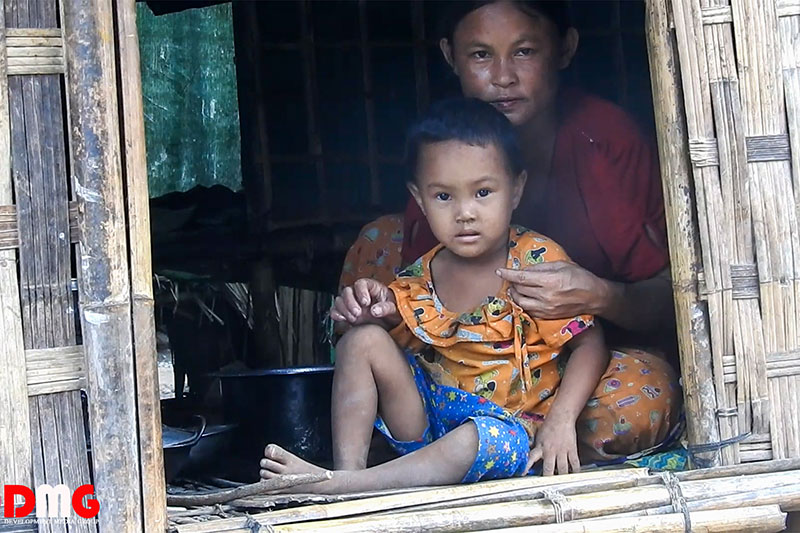
Khin Tharaphy Oo | DMG
27 December 2020, Sittwe
Many conflict-affected people in Arakan State are struggling to repay loans due to the coronavirus pandemic, low incomes and unemployment, according to a statement from the United Nations Office for the Coordination of Humanitarian Affairs (UNOCHA Myanmar).
“A partner presented their recent findings on the high level of indebtedness of conflict-affected people in Rakhine [Arakan] State due to lack of access to livelihood opportunities, challenges in accessing basic services and COVID-19-related movement restrictions,” UNOCHA Myanmar said on December 23.
Internally displaced people (IDPs) in Arakan State say aid agencies often provide only food and clothing, leading many to borrow money because they do not have the funds to cover other daily expenses.
“I am over 50 years old and people don’t want to hire me for their work,” said U Maung Tun Hla, an IDP from Pharpyo IDP camp in Minbya Township. “Now I have to mortgage my valuables. I used to borrow money from close relatives, but as the months went by, the interest rates went up and I no longer dared to borrow. We are facing financial problems for the time being.”
Such informal borrowing arrangements are due to insufficient funding from civil society groups and the World Food Programme (WFP), said Daw Hla Nu Wai, an IDP from Ann Township who is currently sheltering at Kanhtaunggyi IDP camp in neighbouring Myebon Township.
“Job opportunities are very scarce right now. I don’t know what to do because I am not from here. If we run out of money, we borrow it at interest, and repay the borrowers when WFP provides us with money,” she explained.
The government provides only two tins of rice per person per day, and there is no money to buy other necessities, so job opportunities are needed, said U Eindawuntha, a Buddhist monk and an in-charge of Yanaungmyay IDP camp in Buthidaung Township.
“Job opportunities must be created for IDPs. They cannot survive without jobs. I want the government to do something for the IDPs,” the monk added.
“It can be said that job opportunities are still a bit difficult for IDPs, because it has been a little difficult to create jobs over these two years,” said U Khaing Kaung San, director of the Arakan State-based Wan Lark Development Foundation, which provides financial assistance to IDP camps.
“The main problem is that the government cannot go to these IDP camps due to insecurity. The government needs to find a way to reach the IDP camps. That is the important part of government management and thinking,” he added.
DMG phoned Arakan State government spokesman U Win Myint (who is also the state Municipal Affairs minister) for comment on the livelihood woes of IDPs, but he could not be reached.
UNOCHA Myanmar said a partner organisation’s survey on indebtedness was conducted in November and December, interviewing 320 IDPs and other conflict-affected people in Maungdaw and Sittwe townships.
“About 75 percent of the respondents are indebted (average of US$414 per household) because they have taken loans within their communities to cover mainly health care related costs, including childbirth (about 30 percent), basic needs (23 percent) and food (about 21 percent),” UNOCHA Myanmar said.
“Over half of the surveyed IDPs have pawned their WFP rations cards, followed by 22 percent of the respondents using their houses, lands and properties as collateral,” the UN agency added.




